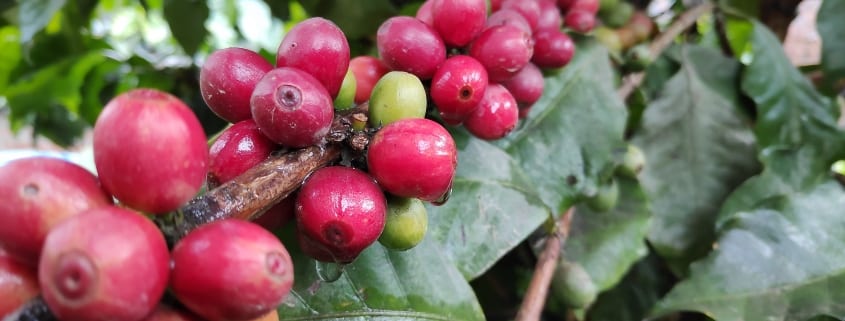Global Climate Crisis Threatens the Future of Coffee Production
For those of us who have developed a reliance on our daily coffee, each day should be celebrated like International Coffee Day. With billions of daily coffee drinkers around the world, it’s difficult to imagine a substitute for the refreshing jolt of energy a great breakfast blend, cold brew or caramel macchiato can provide.
But soon, we might have to.
Two recent studies, one on the state of wild coffee plants and the other on land used to farm them, have yielded disturbing results.
All coffee plants originate from wild coffee plants that are bred and cultivated into new crops to improve taste, disease resilience and other key factors. But rampant deforestation and climate change often cause a deadly combination of heat waves, droughts and disease outbreaks in coffee-growing areas. In response, producers look back to those wild plants to develop new varieties of coffee that can better withstand the new conditions. But now, that resource seems to be dwindling as well.
One of the studies found that out of 124 wild coffee species, at least 60% are in danger of complete extinction. While the majority of these are not cultivated for consumption, Coffea arabica (Arabica) and Coffea canephora (Robusta) – the two leading species in global coffee production – face serious risks.
Arabica, mainly grown in the subtropical highlands of Brazil, Central America and East Africa, is the source of 60%-80% of the world’s coffee. But as temperatures continue to rise and ecological tragedies become more frequent in their habitats, the plants will no longer have a suitable environment to grow. At the current rate, researchers estimate that the number of Arabica plants could fall as much as 80% over the next 70 years. The Robusta bean, while not as popular or delicious as Arabica, can withstand hotter temperatures. But they will not survive in the major temperature swings or calamitous weather that climate change promises to provide.

Arabica branch in Brazil. Photo by Marcelo Corrêa.
Unsurprisingly, the other report estimates that climate change will cause about half of the land used for coffee production to become unsustainable by 2050. This will not only devoid billions of coffee drinkers of their daily fix, it also endangers the livelihoods of 100 million coffee farmers around the world.
As threats from the ongoing climate crisis seem to loom over each facet of the coffee production process, let this International Coffee Day be one of reflection. It is vital to turn our focus to creating a sustainable, coffee-filled future. The first and most important solution is to protect new areas that could be suitable for future coffee production from deforestation. While it is impossible to fully protect land from the climate crisis, we can safeguard the remaining intact land to slow the negative impact.
Several Rainforest Trust partners work to protect land for coffee production and provide sustainable livelihoods for local community members. We also work with several coffee companies on the corporate level that embrace sustainable production. Ecologically friendly coffee farming not only protects natural resources, but cultural ones. Coffee is the most popular beverage in the world, but it is in danger of becoming a rare delicacy in the near future.
Header image: Ripe Arabica. Photo by Gaurav Dhwaj Khadka.




